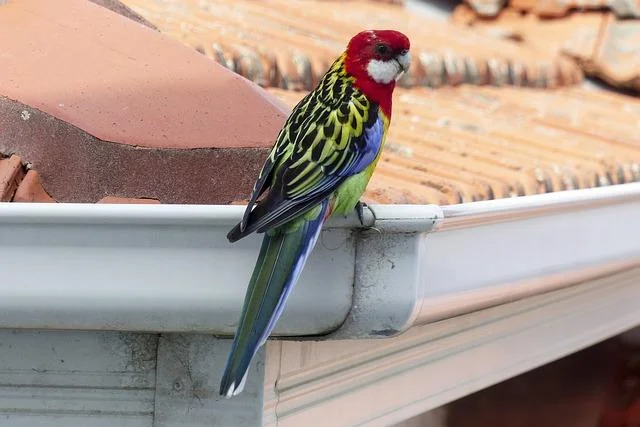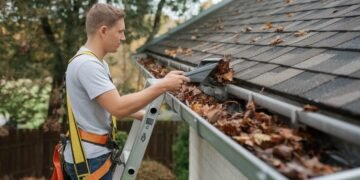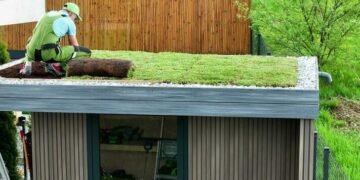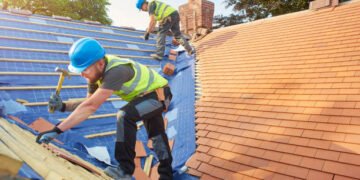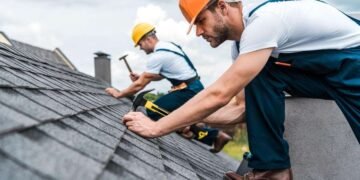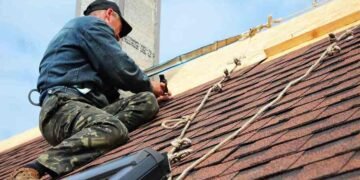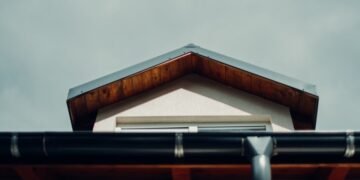Gutters help preserve your home’s structural integrity by diverting water away from the foundation. Well-maintained gutters prevent mold, leaks, and other forms of water damage. They prevent soil erosion while ensuring your home’s exterior doesn’t get stained, mitigating paint damage and stopping mildew and mold growth.
With damaged gutters, your property is at a higher risk of issues like basement flooding and landscape damage, which can result in costly repairs. Familiarizing yourself with the reasons for gutter damage can help protect your home better. Outlined below are seven causes of gutter damage.
Poor Gutter Installation
Optimally functioning gutters are crucial in ensuring water doesn’t enter your house. Poorly installed gutters don’t last long because they’re highly susceptible to damage. They have bad drainage and won’t protect your home against water-related damage. Signs your gutters haven’t been installed correctly include:
- A bad pitch: Gutters with a poor pitch will have water flowing too fast or too slow, causing water overflow or leading to water standing still or moving slowly
- Water leaks: When not installed correctly, gutters can lead to water trickling into your home, causing water leaks that lead to severe water damage
- Gutter detached from the house: Detached gutters create a gap between them and the roof, causing water to fall through. This results in water building up in your house’s exterior or seeping into the windows. Additionally, when detached, gutters can possibly fall and injure someone
Ensuring a reputable roof repair contractor does all your gutter installations can help ascertain proper gutter functioning.
Gutter Blockage
Gutters often get clogged with:
- Leaves
- Moss
- Debris
- Twigs and more
This causes your gutters to become heavy and eventually sag, increasing the risk of damage. Clogged gutters cause water to overflow and pool around your foundation, saturating the soil and causing moisture to seep in the cracks, leading to basement flooding. They result in water backing up, damaging roof shingles, and causing leaks.
Blocked gutters cause water to stagnate and the debris inside to soften, attracting pests. They also increase the risk of ice dam formation, especially in winter, causing significant roof damage. Regular cleaning keeps your gutters clean and blockage-free, extending their lifespan.
Poor Gutter Maintenance
Routine gutter maintenance is vital to keeping your gutters in pristine condition. Neglecting gutter care can cause them to deteriorate over time, creating a breeding zone for mold and mildew. Poorly maintained gutters can also lead to water leaks and roof damage. Regular maintenance extends your gutters’ lifespan while keeping them in pristine condition.
With proper care, gutter issues can be caught and resolved before they escalate, preventing costly repairs and water damage. Consider being proactive with gutter maintenance to ensure they serve you long enough and avoid the risks associated with damaged gutters.
Poor-quality Gutter Materials
Using poor-quality materials for your gutter system leads to bad-quality gutter systems. This increases the risk of your gutters failing before serving you for the recommended period, resulting in expensive repairs and replacements.
Low-quality gutters will age faster and may not handle the pressure that comes with rain water and melted ice passing through, causing them to collapse. The best gutter materials should be top quality to promote endurance while ensuring a long lifespan.
Age
Gutters aren’t meant to last forever. They experience wear and tear and damage as time lapses. After several years of usage, your gutters can start corroding/ rusting, falling apart at the beams, or sagging. For instance, a roofer typically anchors a gutter to the fascia board along the roof. Over time, the wood can rot, causing sagging and water pouring over the sides. Old gutters can damage your home in various ways. If your gutters are damaged due to old age, consider replacing them to avoid these issues.
Weather Conditions
Gutters are constantly exposed to extreme weather conditions, which can lead to damage. Various weather conditions affect gutters differently, including:
- Snow and ice: When ice dams form at a roof’s edge, they can obstruct water flow into the gutters, possibly damaging them and the roof
- Sunlight and heat: Extended sunlight and heat exposure can influence your gutters’ structural integrity, especially if they’re made using materials prone to thermal contraction and expansion. With time, the repeated stress that comes with temperature changes can lead to gutters warping, sagging, or developing leaks
- Wind: Strong winds can rip gutters from your roof’s side, causing damage
- Hail: Hailstones can damage or dent your gutters, influencing their capacity to work effectively
To protect gutters from weather conditions, consider keeping up with regular inspections and maintenance.
Nearby Trees
While trees that are close to your property provide shade and improve energy efficiency, a lack of proper maintenance can lead to gutter clogging and damage. Hanging tree branches can break and land on your roof, potentially denting or pulling down the gutters. Consider keeping tree branches trimmed to reduce the risk of nearby tree branches damaging your gutters.
Endnote
Gutter damage is a common problem in most homes. Understanding the causes of gutter damage can help you better protect your gutter system.

